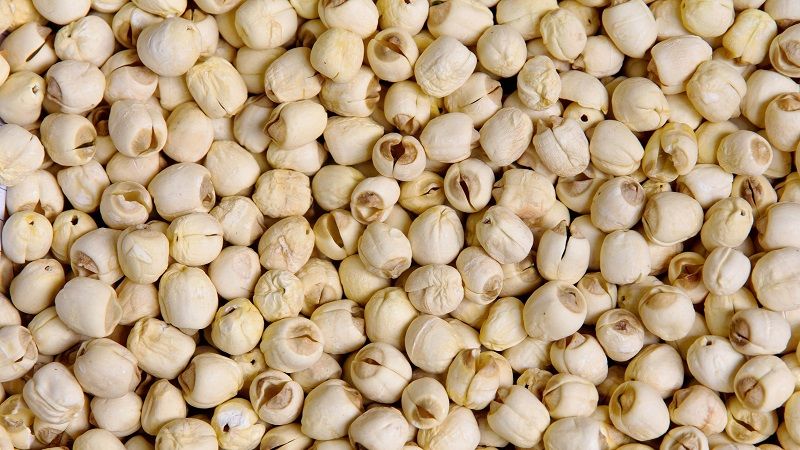Lotus seeds are gaining traction as one of the healthiest ingredients to incorporate in one’s daily diet. But are lotus seeds safe during pregnancy? Belonging to the eponymous plant in the genus Nelumbo, particularly the species Nelumbo nucifera, lotus seeds are prominent in Asian cuisine as well as in conventional medicine. They are sold primarily in shelled, dried form, and are rich sources of protein, dietary minerals, and B vitamins.
Among lotus seeds, there are two distinct types as well: brown peel and white. Brown peel is harvested when the seed head of the plant is either ripe or about to be, whereas the white variety is harvested when the seed head is quite green and yet the seeds themselves have developed almost to the fullest extent. The white lotus seeds are typically deshelled and de-membraned as well.
Health Benefits of Lotus Seeds During Pregnancy
- Lotus seeds are high on antioxidants and therefore have excellent anti-ageing properties. They actively prevent wrinkling of the skin, whitening of hair, and premature ageing.
- Lotus seeds have a long tradition in chinese medicine of rejuvenating the spleen and curing diarrhoea, and are used for this purpose to this day.
- Lotus seeds act as an excellent aphrodisiac. They assist in eliminating premature ejaculation, increases semen quality, and also helps women in overcoming infertility.
- Lotus seeds contain the flavonoid kaempferol which stops inflammatory conditions, and fixes ageing cells.
- These seeds have calming properties, which helps in dealing with hypertension, insomnia, high blood pressure, and palpitations.
- Lotus seeds, when combined with other healthy ingredients, cures urinary problems such as prostatitis effectively.
Must Know Side Effects of Lotus Seed
- People with arrhythmia should be careful of consuming an excess of lotus seeds as they can interfere with heart medication.
- Diabetic patients and people on insulin should also be wary of lotus seeds as they can lower blood sugar levels.
- One might experience allergies on consumption of lotus seeds, especially if they already have allergies towards pumpkin seeds, so caution is advised.
- People may undergo excessive bloating, flatulence, and even constipation up on consumption of lotus seeds.
Are lotus seeds safe during Pregnancy?
Lotus seeds have been shown to have excellent health benefits for pregnant mothers:
- Skin hydration: dry and flaky skin remains one of the enduring scourges of pregnancy, and a lot of mothers face this irritating condition. When rubbed against tough surfaces, this can become extremely annoying and painful. Having lotus seeds can moisturise the skin quite well.
- Loss of fatigue: a lack of energy on an everyday basis can become quite cumbersome and get in the way of daily work for expecting mothers. Lotus seeds provides much needed energy as they have zinc, iron, potassium, magnesium, protein, and vitamins. These components are excellent at providing sustained energy throughout the day.
- Weight regulation: putting on weight comes across as an inevitable consequence of pregnancy. As such, controlling one’s weight while dealing with pregnancy’s other unique conditions can be quite taxing. Lotus seeds possess a low glycaemic index and will help mothers feel full even if they have consumed just a few of them.
As for babies themselves, lotus seeds are certainly safe for them, right from the developmental stage. Higher levels of protein ensure that the development of the foetus happens in the right manner. Other vital nutrients help nourish the growing baby during pregnancy by boosting its central nervous system. Additionally, the ample quantities of vitamins present in lotus seeds help developing babies absorb other nutrients more effectively from the food that they consume.
Nutritional info – Lotus Seed
Taking a standard amount of 100 grams, the usda national nutrient database has found that dried lotus seeds provide 332 calories while consisting of 14% protein, 64% carbohydrates, 2% fat, and 14% water. As mentioned before, the lotus seeds also have an ample amount of b vitamins, but there are some in more quantities than others. Thiamine, for instance, is particularly dominant in lotus seeds, as they have 43% of the daily value (dv) of the vitamin, or in other words, 43% of the recommended daily intake. Apart from thiamine, there are other minerals as well, such as phosphorus at a remarkable 63% dv, and manganese, at a staggering 116% dv.
Conclusion
If you have been wanting to know whether lotus seeds are beneficial during pregnancy, then in a nutshell, the answer is yes! They possess several healthy benefits, and while they do possess a few side effects, a little care in consumption will go a long way towards making the most of lotus seeds during pregnancy.
